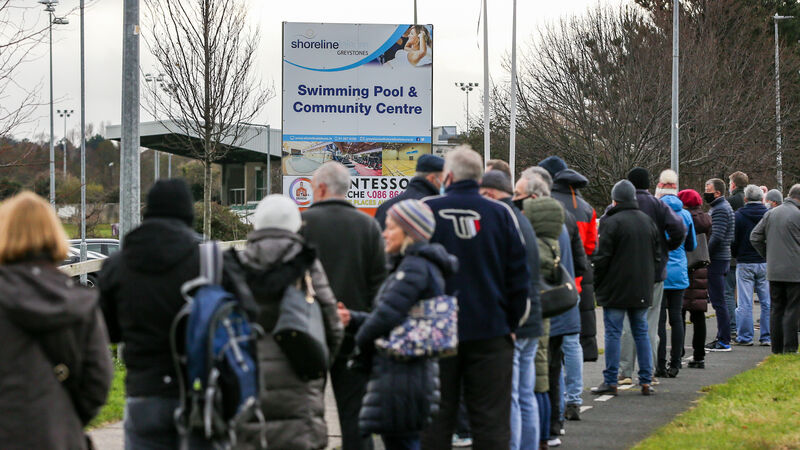Ireland in 'uncertain and unstable position' as Covid-19 spreads, warns CMO

Queues of people form outside a walk-in vaccination centre in Greystones, Co Wicklow (Damien Storan/PA)
A further 4,115 cases of Covid-19 have been confirmed as the Chief Medical Officer has urged the public to get the booster jab as the Omicron variant “will spread more quickly” than Delta.
Currently, there are 511 patients hospitalised with the virus, of which 110 are in ICU.













